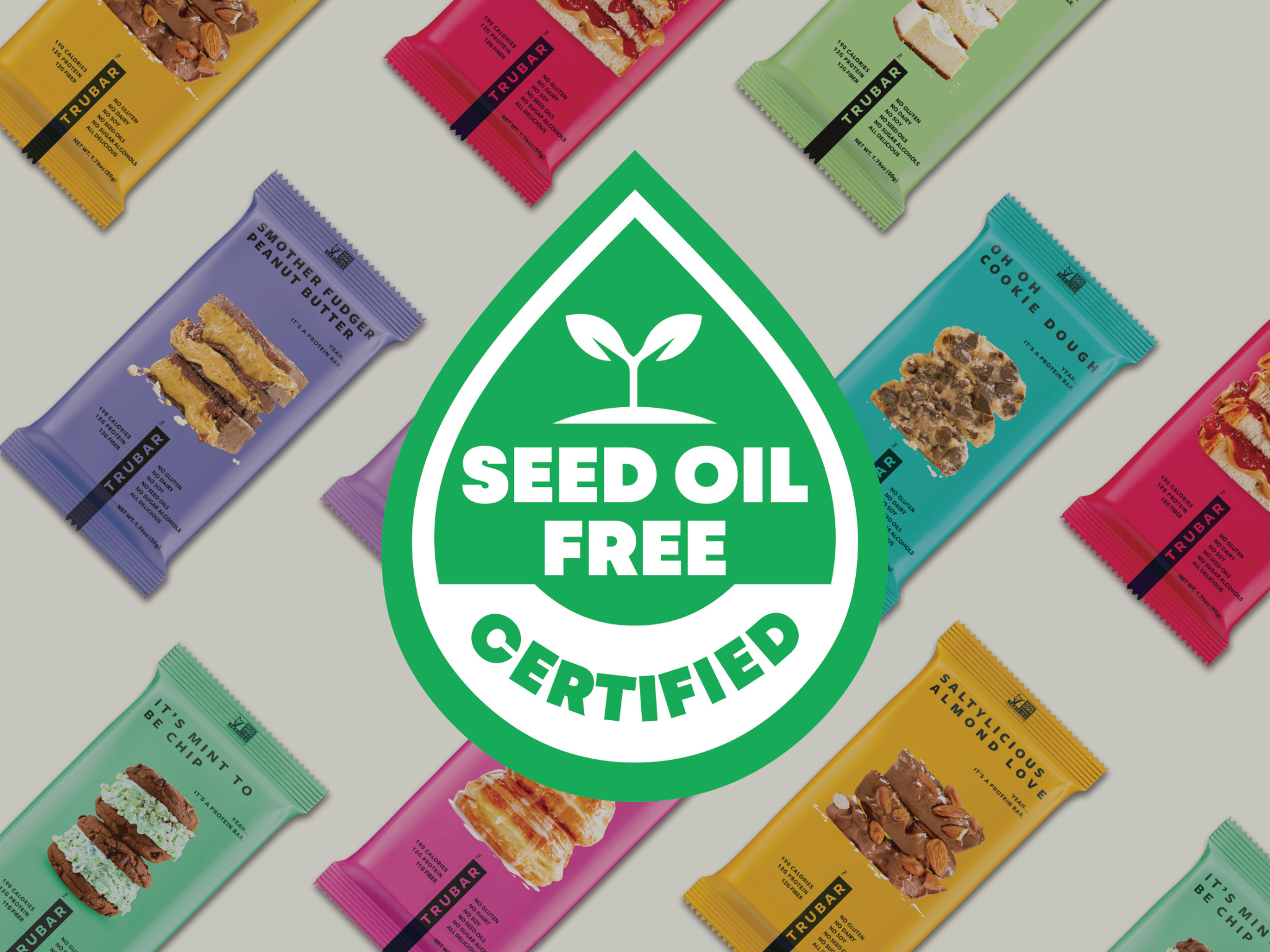
The Seed Oil Free Alliance has rolled out a certification label for products that eschew these fats, building on growing discontent around seed oils and amid a resurgence of tallow.
The battle against seed oils has been taken up a notch with the launch of a new certification label that aims to help Americans “make informed decisions about their health”.
The Seed Oil Free Alliance’s accreditation has already been adopted by over 40 brands, from plant-based innovators like Vita Coco and Trubar, to animal protein and fat startups Grazly and Beefy’s Own Chips, and fermented sugarcane oil maker Zero Acre Farms.
It’s applicable across a number of categories, including non-dairy milks, dips, protein bars, baked goods, restaurant meals, and non-food items. To help consumers identify options without these fats, the organisation has set up a product finder on its website.
It pinpoints canola (rapeseed), corn, cottonseed, grapeseed, rice bran, safflower, soybean, and sunflower seed oils as “high-concern” oils that are made using industrial refining techniques and didn’t exist in human diets before the 20th century.
The Seed Oil Free Certified label comes amid a heightened backlash against these oils, thanks in large part to health secretary Robert F Kennedy Jr, who has suggested that these products have “unknowingly poisoned” people and has prompted many to wonder if a ban might be coming.
Another trend that has arisen as part of the wider anti-seed oil backlash is a rise in beef tallow use, as consumers move away from seed oils due to their purported health detriments, despite renowned nutritionists pushing back against the idea.
Where the seed oil backlash stems from

The Seed Oil Alliance suggests that these fats account for 20-30% of the average American’s daily calorie intake. Their consumption has skyrocketed as their inexpensiveness and abundance have made them a more popular option in many packaged foods and restaurant dishes.
Conflicting studies have shrouded these fats in mystery and confusion. The argument against them centres around the presence of omega-6 fatty acids. These contain linoleic acid, which critics say can oxidise 40 times faster than saturated fat, creating free radicals that can cause a host of health issues, including inflammation.
Additionally, when heated to high temperatures beyond their smoke point, seed oils high in linoleic acid can generate a compound called hydroxynonenal, which can lead to health issues like decreased metabolism and higher oxidative stress.
However, studies have shown that refined seed oils have no effect on inflammation, and in fact, linoleic acid can help lower it. The average human eats around 6-10% of their overall calories from linoleic acid today. However, the American Heart Association and Institute of Medicine actually recommend getting 5-10% of your daily calories from omega-6 fats.
Concerns around ultra-processed food have further contributed to the seed oil conundrum. A fierce critic of UPFs and seed oils, RFK Jr pointed to how McDonald’s transitioned from beef tallow to seed oils for its famous fries.
“This switch was made because saturated animal fats were thought to be unhealthy, but we have since discovered that seed oils are one of the driving causes of the obesity epidemic. Interestingly enough, this began to drastically rise around the same time fast food restaurants switched from beef tallow to seed oils in their fryers.”
His comments coincided with the revival of tallow, thanks to anti-seed-oil brands and TikTok beauty influencers. What is not being said is that this is a product made by the most polluting industry in the food system, and contains high levels of saturated fat, a leading cause of heart disease, which kills one American every 33 seconds. Nevertheless, RFK rallies on, appearing at a Steak ’n Shake location in Florida to praise its switch from seed oils to tallow in March.
Nutrition experts warn against seed oil misinformation

The misinformation around seed oils and tallow has created a lot of confusion among Americans. While two in five consumers are worried about seed oils’ health impacts, a similar number of them want more information.
Nearly a third think there isn’t enough evidence to support negative claims about seed oils, and agree that they’re unfairly criticised in health discussions, with most putting the blame on social media influencers and self-proclaimed wellness experts.
A recent Harvard study suggested that swapping just a tablespoon of butter with plant-based fats (including seed oils) can lower the risk of premature death from cancer and other causes by 17%. The American Heart Association has proclaimed that there is “no reason to avoid seed oils and plenty of reasons to eat them”.
Dr Christopher Gardner, a professor of medicine at Stanford University School of Medicine in California, says that omega-6 fatty acids get demonised because they play a smaller role in lowering cardiovascular disease risk than omega-3s, which are more anti-inflammatory.
However, to take that to mean omega-6 fats are pro-inflammatory is wrong. Both omega-6 and omega-3 fats play a role in the inflammatory response of the body. What is optimal is a balance,” he explains.
“I cannot find convincing data that seed oils are any worse for health than any other high-calorie food, and the evidence for their benefits as compared to animal fats seems strong and consistent,” NYU Professor Emerita Dr Marion Nestle recently wrote.
She also highlighted a crucial concern – if we phase out seed oils, we would likely see an increase in palm oil imports. That raises a multitude of issues, including an “unhealthy degree of fat saturation, deforestation, loss of biodiversity, child labour, labour exploitation, adulteration, and criminal behaviour”. With President Trump’s tariffs, it would mean higher costs for Americans, too.
For many brands, it’s almost becoming a necessity to tell consumers they’re free from seed oils, so this new certification will serve to help them. What it won’t do, however, is counter the misinformation that has plagued seed oils and driven many Americans to beef tallow, against the wishes of top health experts.
As Nestle said: “Getting them out of the food supply could help reduce calorie intake, but only if they are not replaced by other fats. Using seed oils is healthier than using more saturated fats.”
The post New Alliance Takes Aim at Seed Oils with Certification Label, But Experts Warn of Misinformation appeared first on Green Queen.
This post was originally published on Green Queen.